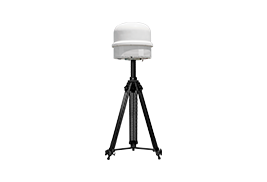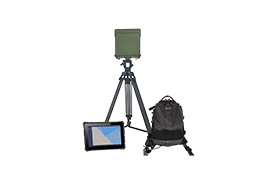
























 X
X







 GLOBAL / ENGLISH
GLOBAL / ENGLISH

In today's digitally connected world, protecting sensitive conversations has become increasingly challenging. The rise of sophisticated eavesdropping devices, including smartphones and hidden microphones, has made it easier for unauthorized individuals to intercept private communications. One effective solution to this problem is the use of audio jammers. These devices are designed to prevent eavesdropping by emitting noise that disrupts the recording capabilities of microphones. This article explores the technology behind audio jammers, their applications, and the ethical considerations surrounding their use.
The Technology Behind Audio Jammers
Audio jammers operate on a simple principle: they emit a noise signal that masks or interferes with audio recording devices, rendering the captured sound unintelligible. The most common types of noise used include:
White Noise: A broad-spectrum noise that covers all frequencies evenly, making it difficult for recording devices to filter out the noise and capture the actual conversation.
Ultrasonic Noise: High-frequency sounds that are inaudible to humans but can interfere with the functioning of microphones, especially those used in smartphones and digital recorders.
Random Sound Patterns: These can include snippets of speech or other non-repeating sounds, which are particularly effective because they blend into the background and make it challenging for audio filters to distinguish between the jamming signal and the actual conversation.
Applications of Audio Jammers
Corporate Security: In the corporate world, protecting intellectual property and confidential discussions is paramount. Audio jammers are commonly used in boardrooms and executive offices to prevent the recording of sensitive conversations, thereby safeguarding strategic plans and business secrets.
Government and Military: Government agencies and military installations often deal with highly classified information. Audio jammers are an essential part of the security infrastructure in these settings, helping to prevent espionage and unauthorized recordings during critical discussions.
Personal Privacy: Individuals concerned about their privacy may use portable audio jammers to secure their personal conversations, whether in public spaces or private meetings. This is particularly useful for public figures, journalists, and individuals discussing sensitive issues.
Healthcare and Legal: In medical and legal settings, confidentiality is crucial. Audio jammers help protect patient and client information by preventing the recording of conversations in clinics and law offices.
Ethical and Legal Considerations
While audio jammers offer significant benefits in protecting privacy, their use raises important ethical and legal questions:
Legality: The legality of audio jammers varies widely across different jurisdictions. In some regions, their use is heavily regulated or even prohibited, as they can interfere with lawful surveillance or recording activities. Users must be aware of the laws in their specific area before deploying these devices.
Ethical Implications: The use of audio jammers can be ethically controversial, particularly when used to obstruct legitimate surveillance or investigative work. There is a fine line between protecting privacy and hindering transparency and accountability.
Potential for Abuse: Audio jammers can be misused for malicious purposes, such as obstructing evidence collection in legal investigations or preventing journalists from conducting interviews. Responsible use and clear regulations are essential to prevent abuse.
Conclusion
Audio jammers are a powerful tool in the modern arsenal for protecting privacy and ensuring the confidentiality of sensitive communications. As technology continues to evolve, the need for effective countermeasures against eavesdropping will only increase. However, the deployment of audio jammers must be balanced with ethical considerations and legal compliance to prevent misuse and ensure that the rights of all parties are respected.
For individuals and organizations considering the use of audio jammers, it is crucial to understand the potential implications and to consult with legal experts to ensure compliance with local laws. As with any security measure, responsible use is key to maintaining a balance between privacy protection and transparency.












